Author: Matt Dixon
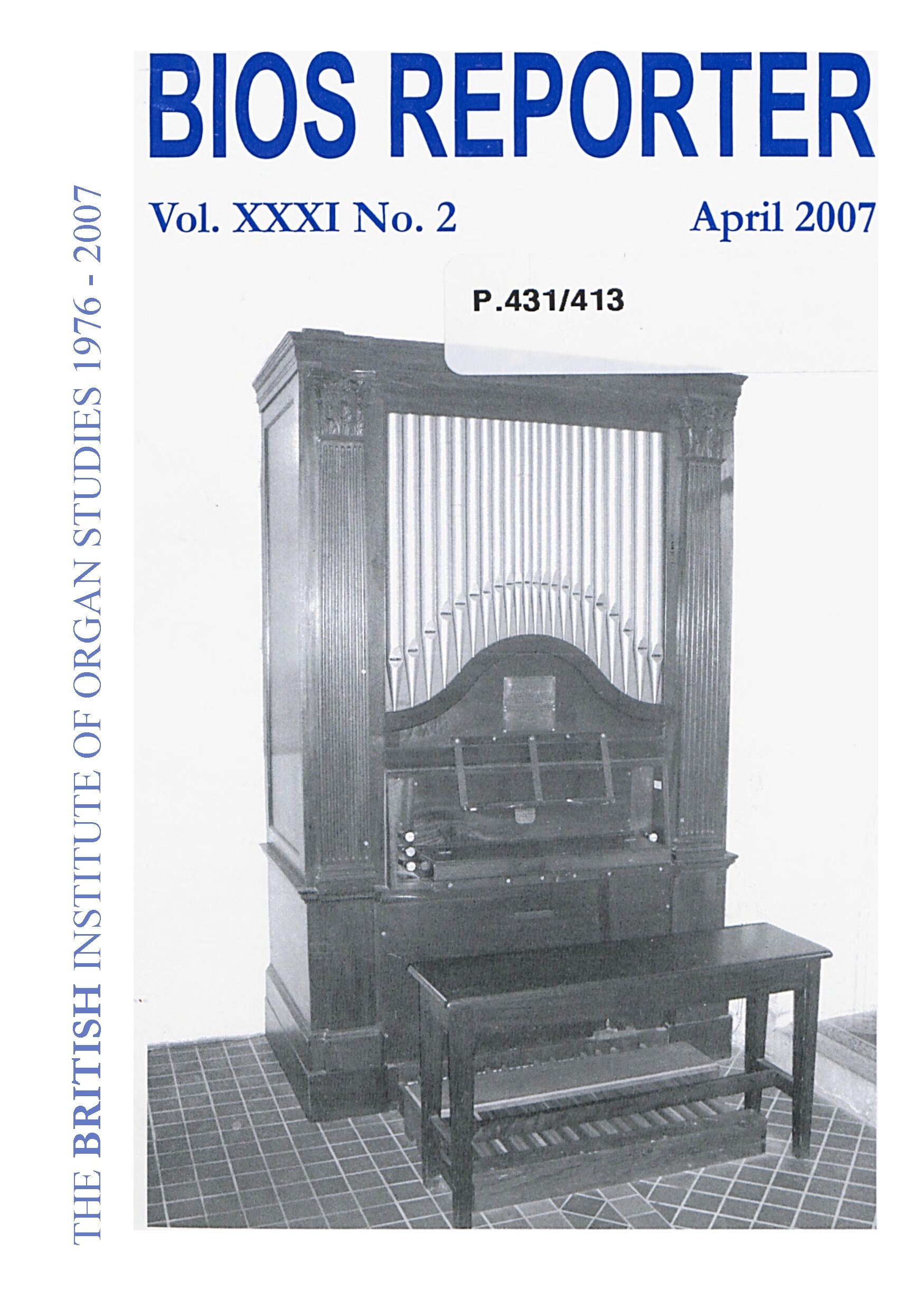
BIOS Reporter – Volume 31, No.2 – April 2007
It has been a daunting task to take over the Chairmanship of BIOS from Professor Peter Williams. BIOS is doing so much. The NPOR is a public face which, thanks to Frances Pond, the editors and all the corrections sent in by members, is still improving in accuracy and scope. The Historic Organ Sound Archive…
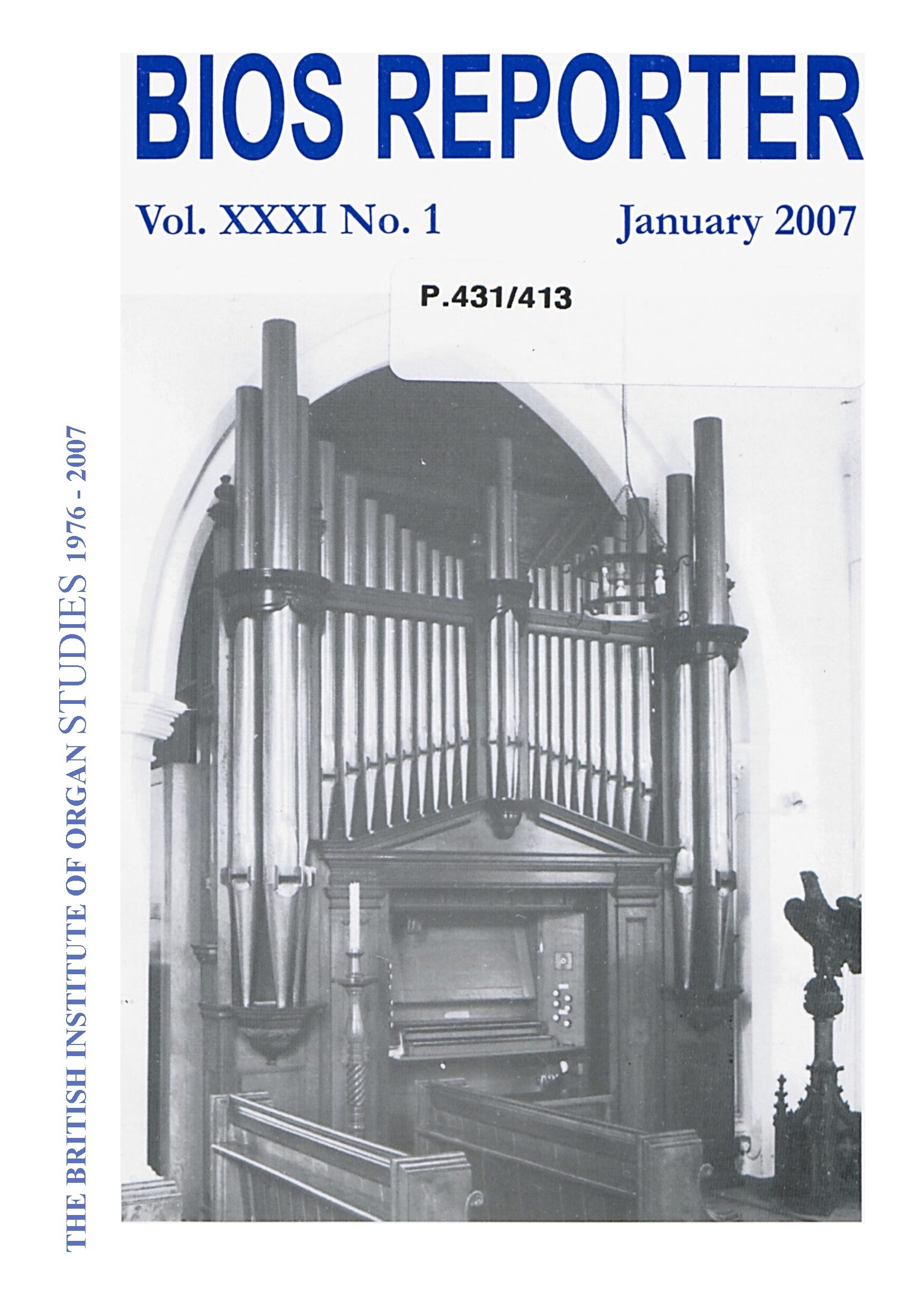
BIOS Reporter – Volume 31, No.1 – January 2007
Discomforting the clergy may seem, at first sight, both a mildly amusing remark and one perhaps a little unfair on that calling. Yet it must surely be an essential task for any organist dealing with church music. At its most constructive, such discomforting should alert the clergy, in a sympathetic manner, to the contribution which…
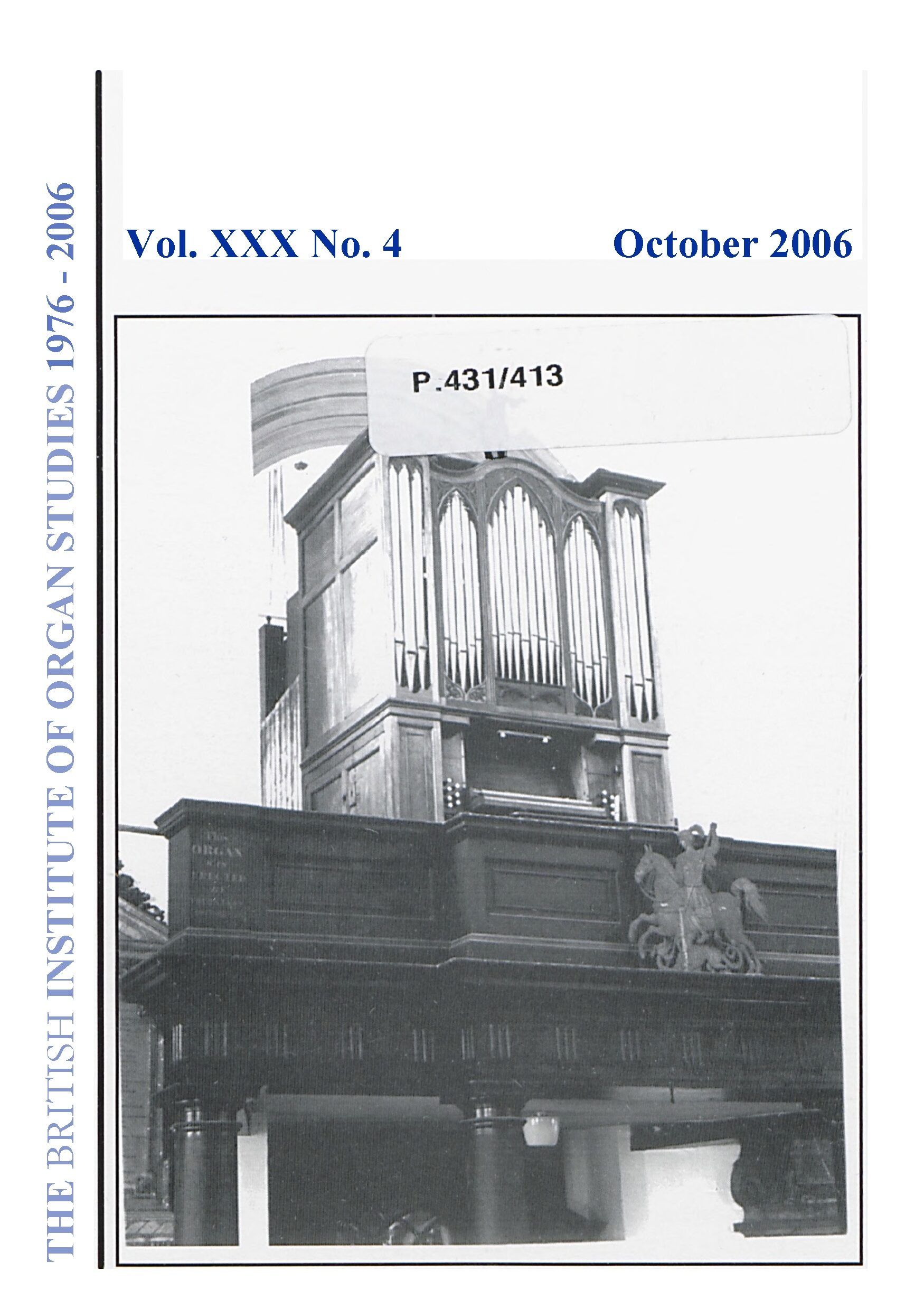
BIOS Reporter – Volume 30, No.4 – October 2006
Last month’s editorial produced several letters, expressing support and disagreement. The general intention was to highlight a perceived problem in contemporary music education in schools, one in which apparent deficiencies might hinder the development of young musicians to the point where they might be unable to contribute to the Aims of BIOS…
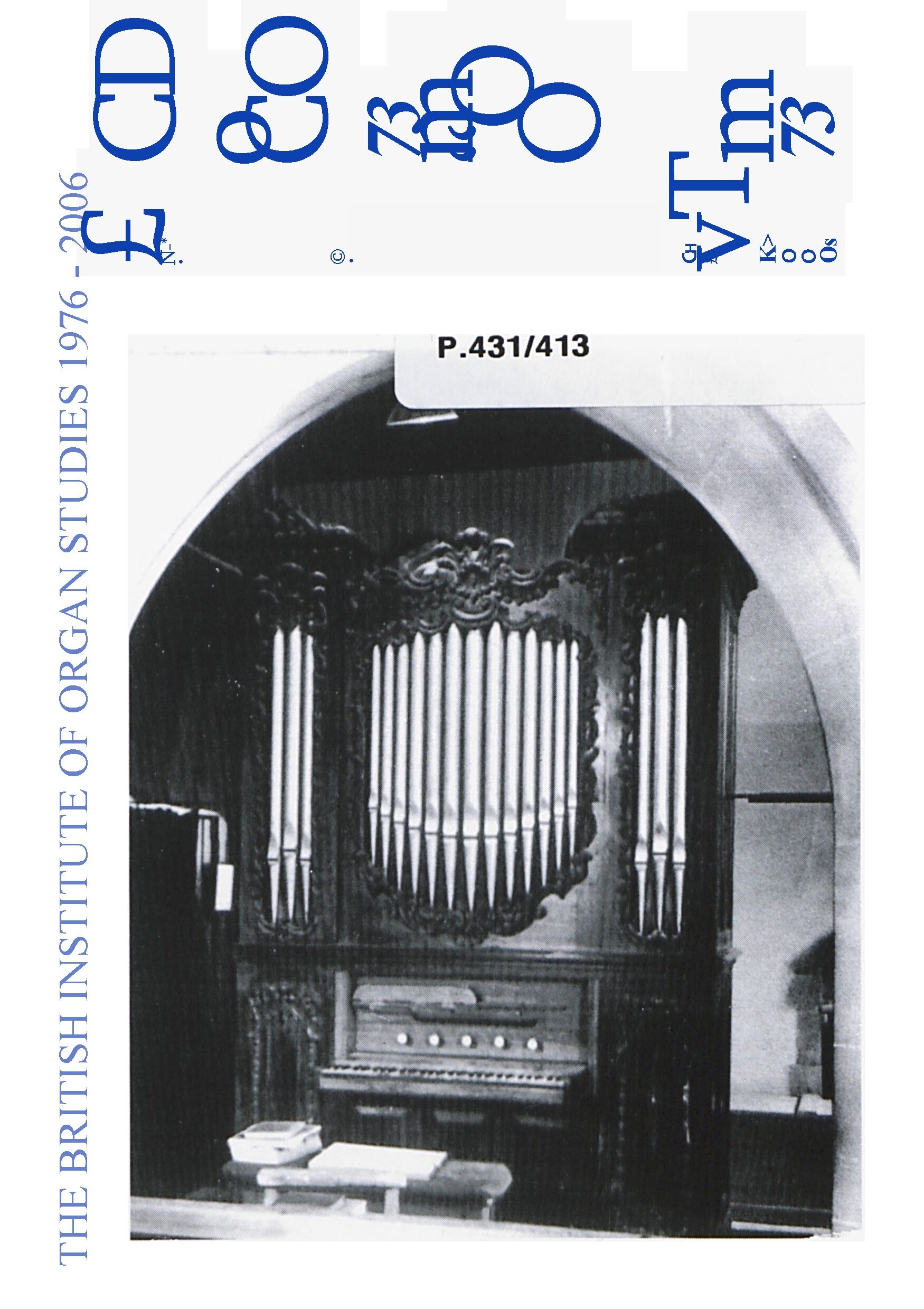
BIOS Reporter – Volume 30, No.3 – July 2006
The quotation turned up in a recent concert programme, almost simultaneously with the news that a major academic publication for music students had eschewed music examples in order to spare the blushes of students who could not read music. Yet again, there is a cause for great concern…
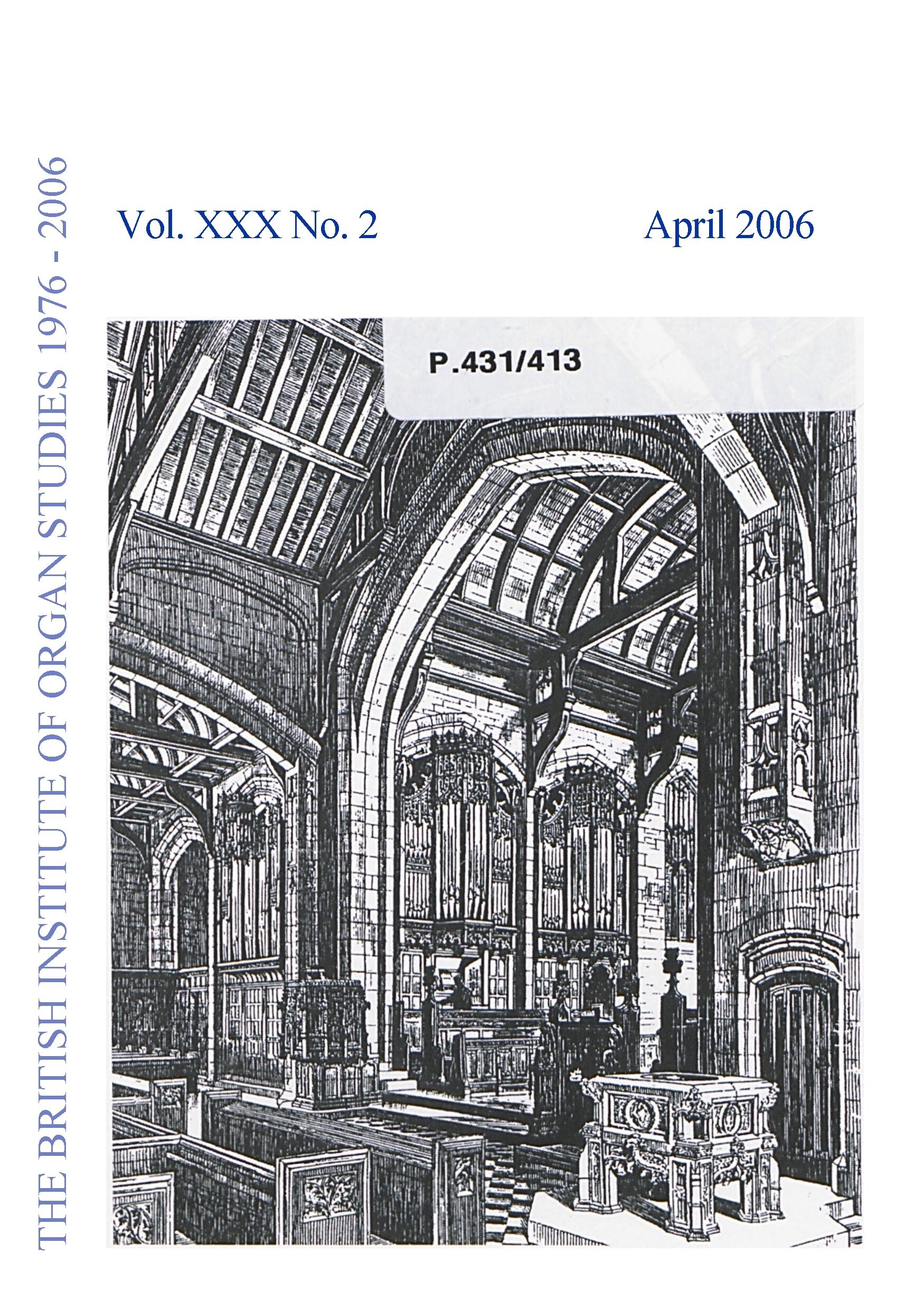
BIOS Reporter – Volume 30, No.2 – April 2006
The European Union is never far from controversy; two recent moves demonstrate the incredible capacity of that leviathan to threaten the very existence of the pipe organ while, at the same time, proclaiming a commitment to preserving the status and place of the instrument in European culture…
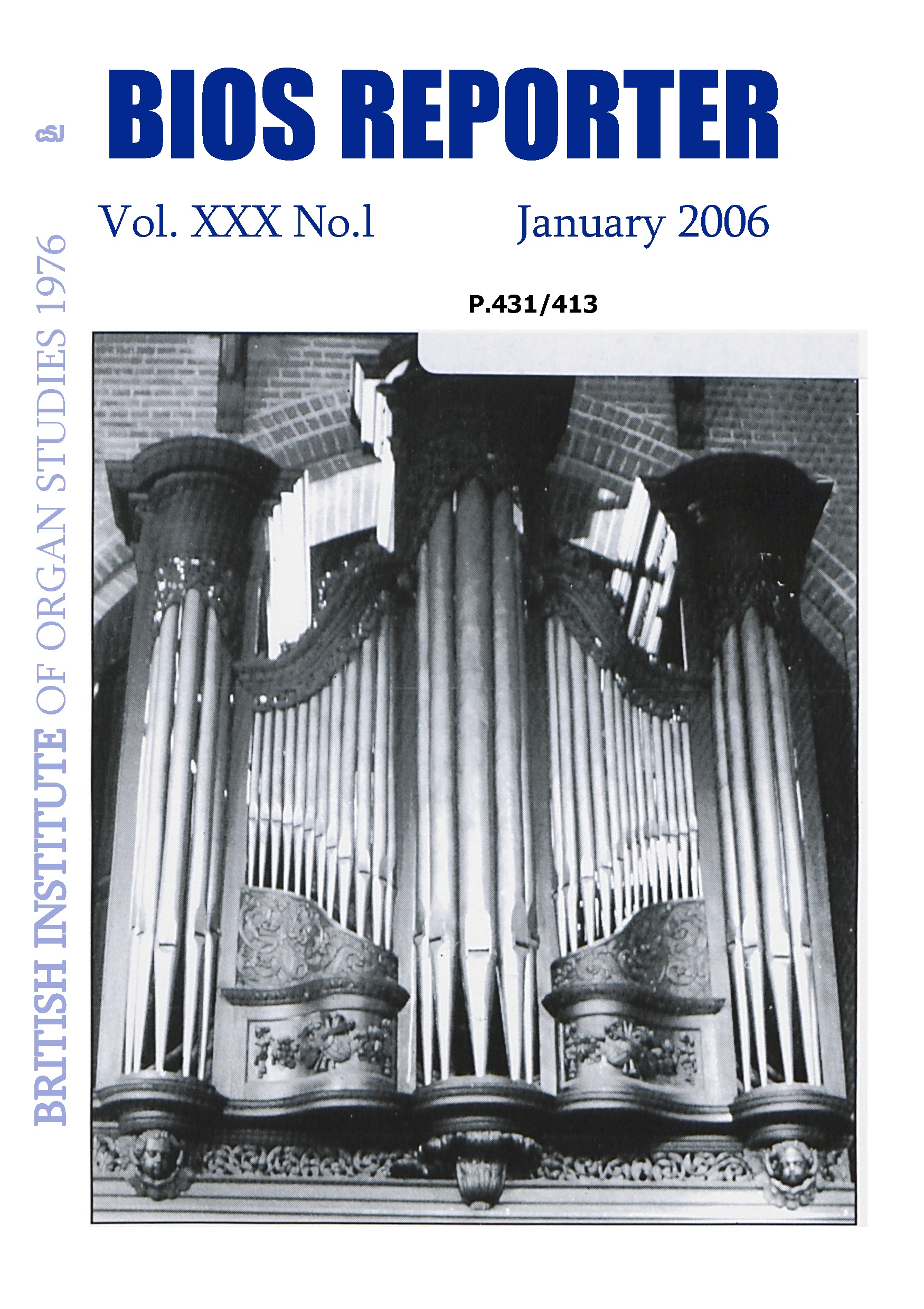
BIOS Reporter – Volume 30, No.1 – January 2006
As BIOS enters into its thirtieth year, it is worth reflecting on the present condition of the Institute and its Aims. Like any lively organisation, BIOS has grown and matured, suffered setbacks, overcome obstacles, and enjoyed true achievement. Its members have produced much admirable scholarship, exhibiting a catholicity of viewpoint, which has undoubtedly shaped attitudes…
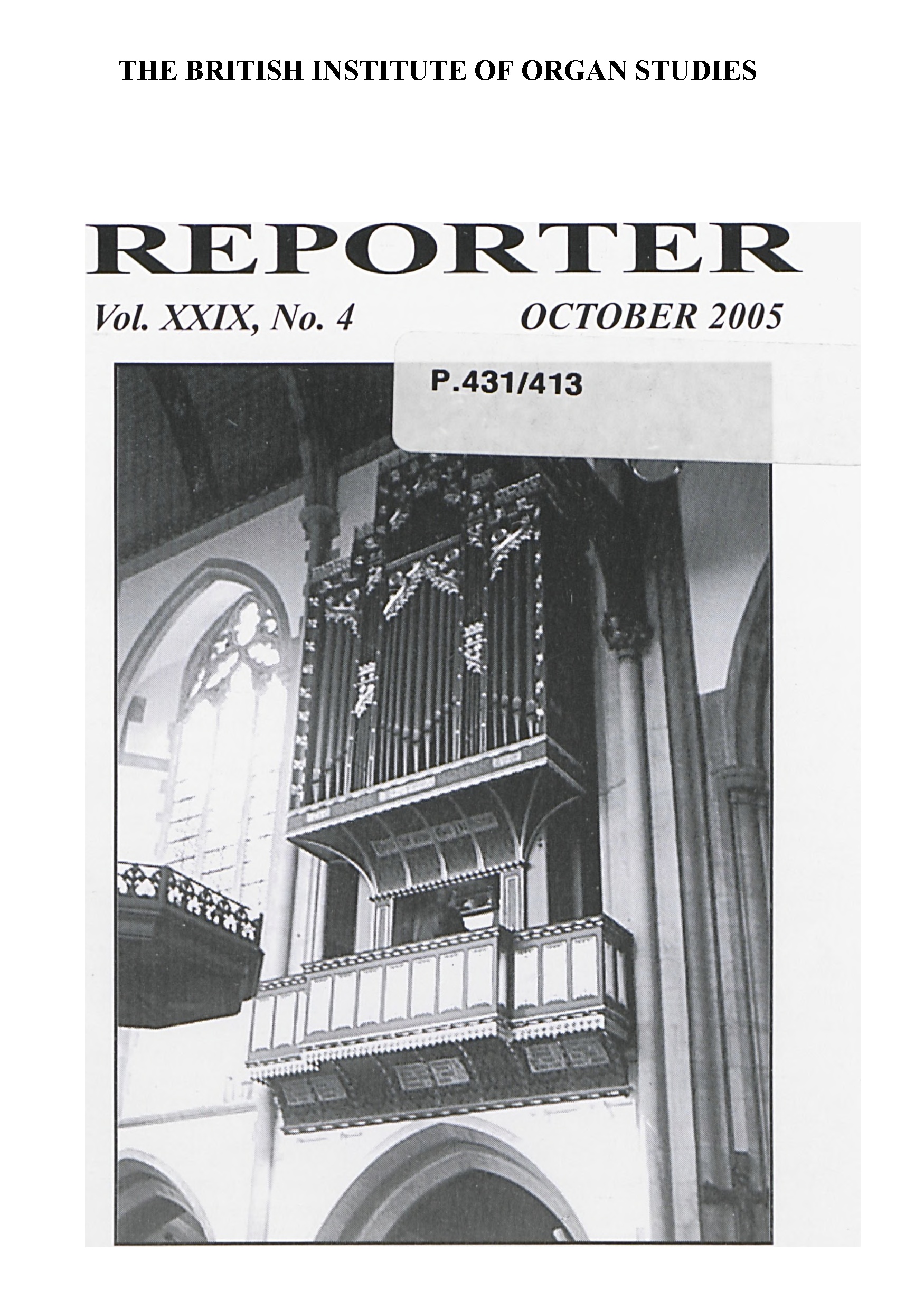
BIOS Reporter – Volume 29, No.4 – October 2005
The preservation of records relating to organs and organ-building is fundamental to the role of BIOS. Similarly, every organ-builder of repute and business common sense understands the importance of records relating to the company, even work undertaken by the firm perhaps a century or more ago. An organ which has been out of a company’s…
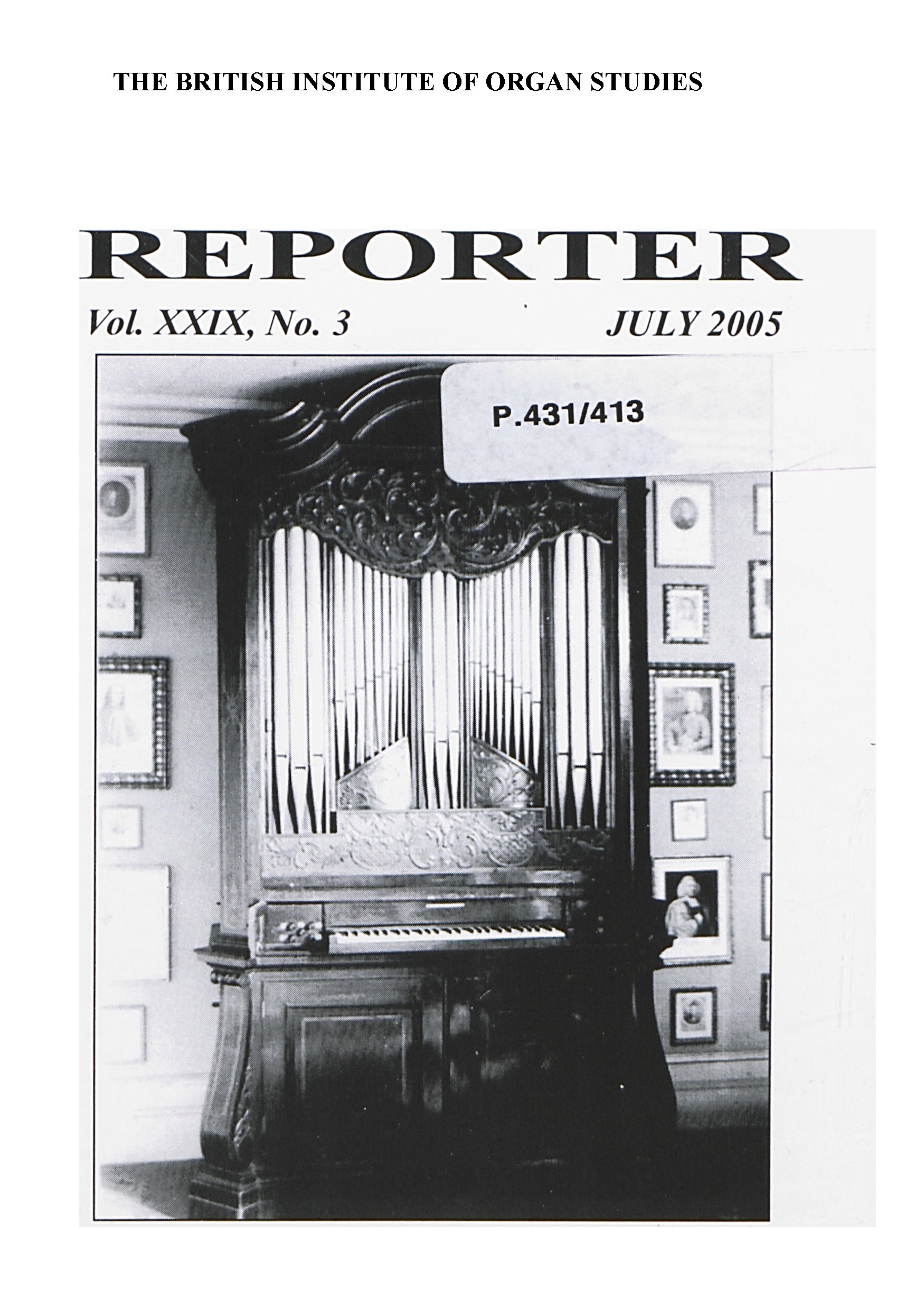
BIOS Reporter – Volume 29, No.3 – July 2005
The preservation of historic organs ought to be a simple affair, requiring no great feats of imagination or administration to ensure that important material is not destroyed; in particular, ecclesiastical exemption in planning matters, involving dedicated experts, is the obvious vehicle to deliver the necessary safeguards to protect valuable instruments and artefacts, in conjunction with…
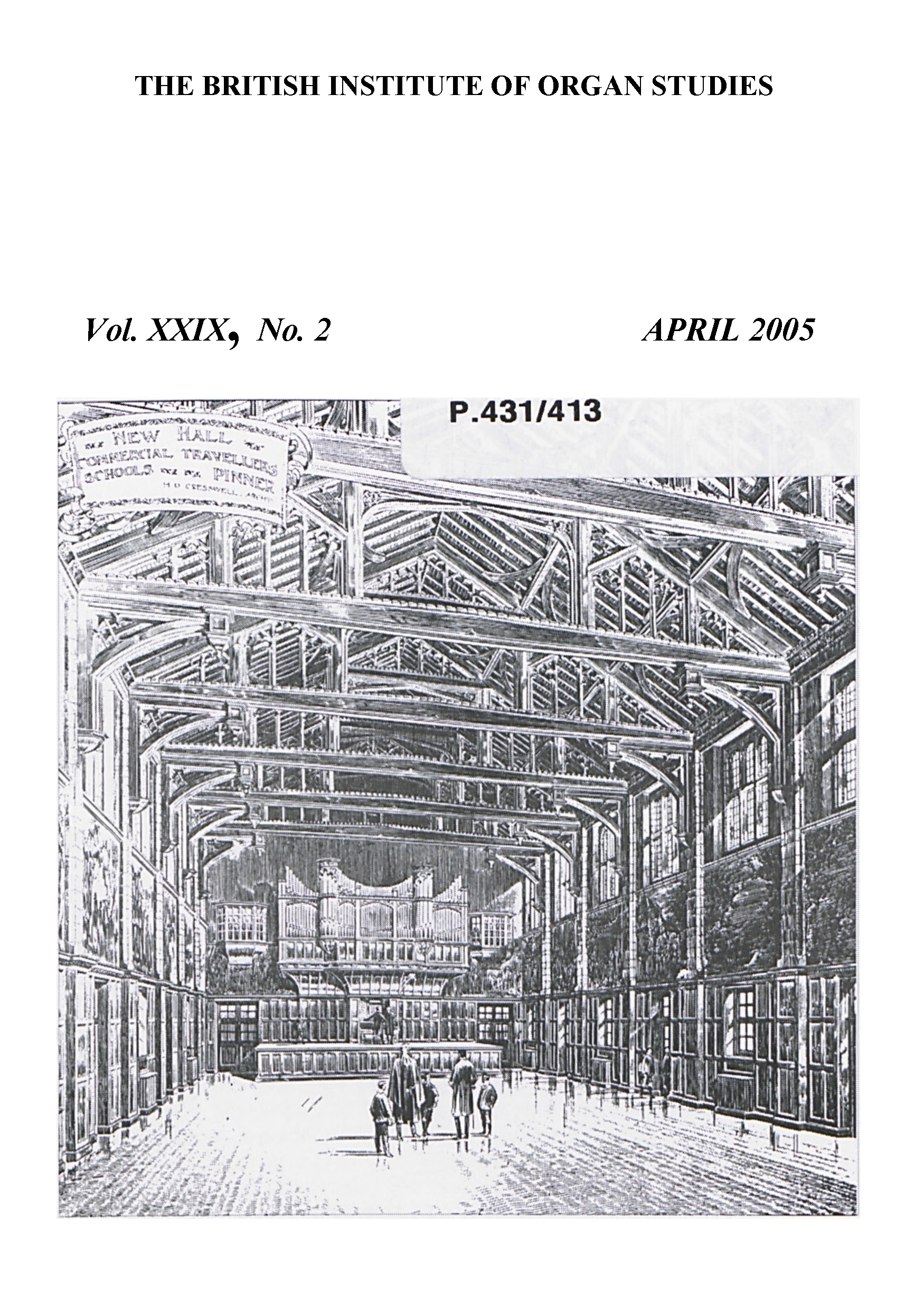
BIOS Reporter – Volume 29, No.2 – April 2005
The Pontificate of John Paul II marked a period of profound political change in Europe, affecting many aspects of society in different degrees, including those who study the organ and its music…
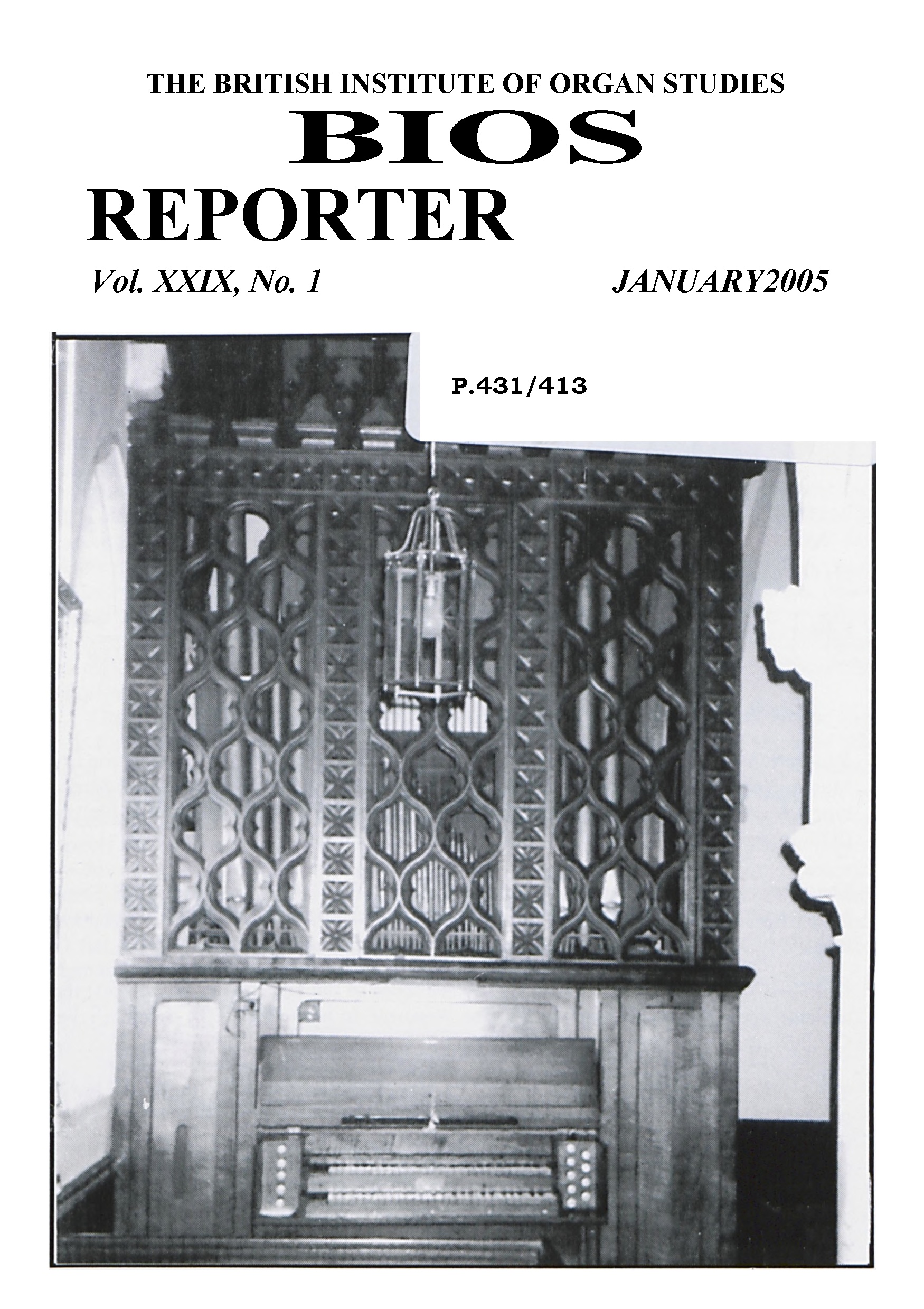
BIOS Reporter – Volume 29, No.1 – January 2005
A chance remark, made over three fine harpsichords, on a topic much researched in the past three decades as equal temperament has been called to account. The consensus that equal temperament became the dominant tuning as the nineteenth century progressed may have ignored something peculiar to the organ and the harp. Of all instruments in…